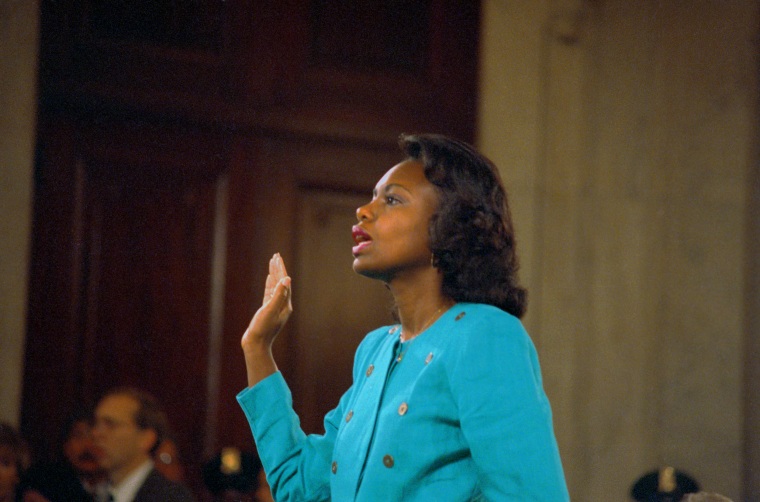Anita Hill, the woman who accused then-Supreme Court nominee of sexual harassment in 1991, joined the latest episode of "Meet the Press Reports" to discuss the fallout from the #MeToo movement and whether the scourge of sexual harassment still exists.
"Harassment has not ended in every corner," Hill said.
"That’s one of the shortcomings, I think, of the [#MeToo] movement — that it hasn’t been inclusive enough, that it hasn’t reached into all of the corners, in the places where harassment and sexual assault and abuse has happened," Hill added.
The episode examines the #MeToo movement, five years after its inception, and how members of Generation Z perceive the movement now.
"We only heard about #MeToo when celebrities were involved. ... It was never #MeToo when, you know, something happened on a college campus. It wasn't #MeToo when someone just went to work at a regular corporate office. It's not #MeToo when, maybe it's a Black man saying that he was assaulted," Kaci Dozier, a student at Coastal Carolina University, told NBC News' Savannah Sellers.
Hill agreed with what Dozier and other young women said.
"They are really justified in feeling abandoned to some extent. I don’t think that’s the problem of the movement, I think that what they’re realizing is that resistance to solving this problem is still out there," Hill said.
She added that to continue working to eliminate sexual harassment and sexual assault in the future, the focus has to be on educating children.
"We all have to do more to reach them and we even have to do more to reach them at a younger age," Hill said.
She added, "One of the things that we’re not talking about enough is prevention -- how do we prevent this from even becoming a part of someone’s lived experience that can continue throughout a lifetime."
When children begin to see sexual harassment at a young age, Hill said, they're less likely to speak up about it as they get older.
"It happens to about a third of the students in middle school and so the problem builds and builds and what is important to recognize is that it’s affecting not only direct victims, but it’s affecting all of the people around them because they’re learning that this is something you just have to put up with or that the institution isn’t going to do anything about, so why bother to complain?" Hill said.
She added, "We’ve got to send out better messages to children than that because what we’re doing is, in essence, we’re grooming them to expect that it’s normal, or that it can’t be addressed or that no one even cares enough to bother to address it."

